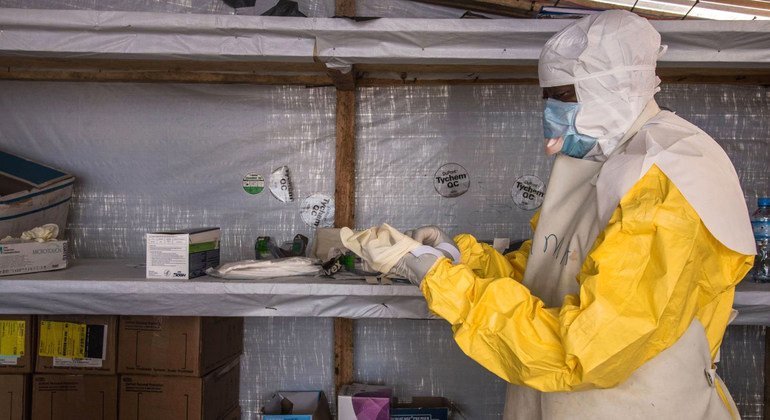Ghana prepares for possible first Marburg virus outbreak |


Preliminary analysis of samples taken from two patients by the country’s Noguchi Institute for Medical Research showed positive cases for Marburg, and samples were sent to the Pasteur Institute in Senegal, a World Health Organization (WHO) Collaboration Center, for confirmation.
The two, unrelated, patient from the southern Ashanti region presented with symptoms including diarrhea, fever, nausea and vomiting. Both are dead.
WHO mobilizes health experts
Preparations for a possible outbreak response are being rapidly established as further investigations are underway and WHO is deploying experts to assist Ghana’s health authorities by strengthen disease surveillance, testing, contact tracing, preparing patients for treatment, and working with communities to warn and educate them about the risks and dangers of disease, and to collaborate with emergency response team.
Dr Francis Kasolo, World Health Organization (WHO) Representative in Ghana said: “Health authorities are investigating the situation and preparing for a potential outbreak. “We are working closely with this country to strengthen detection, contact tracing, ready to control the spread of the virus.”
If confirmed, cases in Ghana would mark the second time Marburg has been detected in West Africa. Guinea confirmed a single case in an outbreak announced on September 16, 2021, five weeks after the first case was detected.
High death rate
Previous outbreaks and sporadic cases of Marburg in Africa have been reported in Angola, Democratic Republic of the Congo, Kenya, South Africa and Uganda.
Marburg is transmitted to humans from fruit bats and is spread from person to person through direct contact with infected person’s bodily fluids, surfaces, and materials. The illness has a sudden onset, with high fever, severe headache, and malaise.
Many patients develop signs of major bleeding within seven days. Case mortality has varied from 24% to 88% in previous outbreaks depending on virus strain and case management.
Although there is no approved vaccine or antiviral treatment to treat the virus, supportive care – oral rehydration or intravenous fluids – and treatment of symptoms specifically improve survivability. A wide range of potential treatments, including blood products, immunotherapy, and drug therapy.




